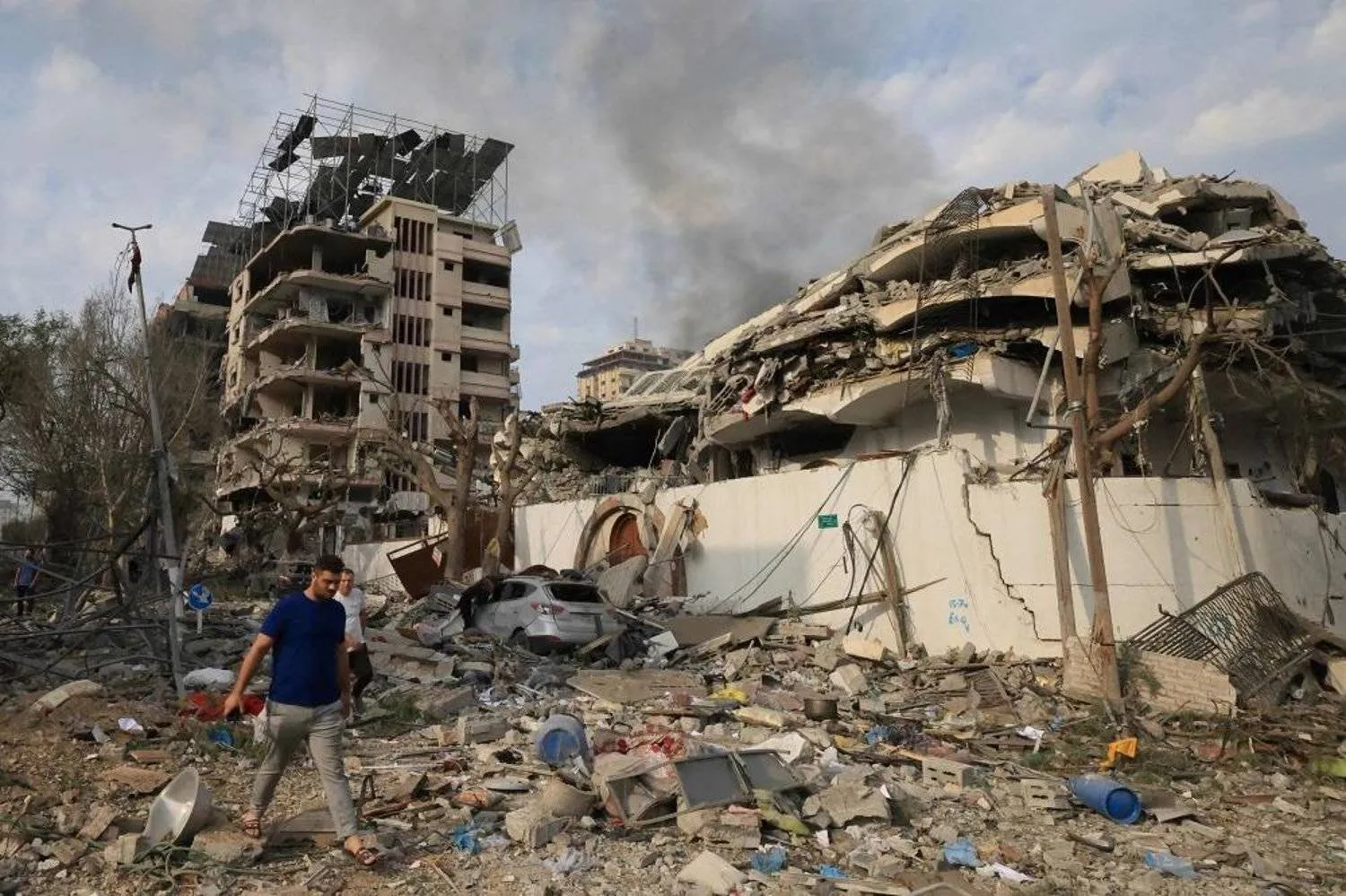He pointed to his greenhouse's metal frame and its white plastic sheeting strewn across the plot, inside an area designated a humanitarian zone by the Israeli army.
"People were sitting peacefully on their farmland ... and suddenly tanks arrived and fired at us, and then there were (air) strikes."
Abu Jazar said the Israeli operation in late June destroyed about 40 dunams (10 acres) of land and killed five laborers, reported AFP.
His is not an isolated case. Across Gaza, 57 percent of agricultural land has been damaged since the war began, according to a joint assessment published in June by the UN's agriculture and satellite imagery agencies, FAO and UNOSAT.
The damage threatens Gaza's food sovereignty, Matieu Henry of the Food and Agriculture Organization told AFP, because 30 percent of the Palestinian territory's food consumption comes from agricultural land.
"If almost 60 percent of the agricultural land has been damaged, this may have a significant impact in terms of food security and food supply."
The Gaza Strip exported $44.6 million worth of produce in 2022, mainly to the West Bank and Israel, with strawberries and tomatoes representing 60 percent of the total, according to FAO data.
That number fell to zero after the October 7 attack on southern Israel that resulted in the deaths of 1,195 people, mostly civilians, according to an AFP tally based on Israeli figures.
Israel's retaliatory offensive has killed at least 38,098 people, also mostly civilians, according to figures from the Hamas-run territory's health ministry.
The damage assessment on the agricultural land comes as the UN's hunger monitoring system estimated in June that 96 percent of Gaza faces high levels of acute food insecurity.
Contacted by AFP, the Israeli army said it "does not intentionally harm agricultural land".
In a statement, it said Hamas "often operates from within orchards, fields and agricultural land".
No work, no income
The impact is worse in the Palestinian territory's north, where 68 percent of agricultural land is damaged, although the southern area encompassing parts of Al-Mawasi has seen the most significant increase in recent months due to military operations.
UNOSAT's Lars Bromley told AFP the damage is generally "due to the impact of activities such as heavy vehicle activity, bombing, shelling, and other conflict-related dynamics, which would be things like areas burning".
Near the southern city of Rafah, 34-year-old farmer Ibrahim Dheir feels helpless after the destruction of 20 dunams (five acres) of land he used to lease, and all his farming equipment with it.
"As soon as the Israeli bulldozers and tanks entered the area, they began bulldozing cultivated lands with various trees, including fruits, citrus, guava, as well as crops like spinach, molokhia (jute mallow), eggplant, squash, pumpkin and sunflower seedlings," he said, before listing more damage in a testimony of the area's past agricultural abundance.
Dheir, whose family exported its produce to the West Bank and Israel, now feels destitute.
"We used to depend on agriculture for our livelihood day by day, but now there's no work or income."
Lasting damage
Farmer Abu Mahmoud Za'arab also finds himself with "no source of income".
The 60-year-old owns 15 dunams (3.7 acres) of land on which crops and fruit trees used to grow.
"The Israeli army passed through the land, completely wiping out all trees and crops," he told AFP.
"They bulldozed and shelled the land, turning it into barren pits."
The harm done to farmland in Gaza will last far beyond tank tracks and explosions, said Bromley of UNOSAT.
"With modern weaponry, a certain percentage is always going to fail. Tank shells won't explode, artillery shells won't explode ... so clearing that unexploded ordnance is a massive task," he said.
It will require "probing every centimeter of the soil before you can allow the farmers back onto it".
Despite the risks, Dheir wants to return to farming.
"We want the war to stop and things to return to how they were so we can farm and cultivate our lands again."
'Bulldozed and Shelled': Gaza's Farming Sector Ravaged by War

Palestinians walk through a ravaged street following Israeli airstrikes on Gaza City, on October 10, 2023. (AFP)

'Bulldozed and Shelled': Gaza's Farming Sector Ravaged by War

Palestinians walk through a ravaged street following Israeli airstrikes on Gaza City, on October 10, 2023. (AFP)
لم تشترك بعد
انشئ حساباً خاصاً بك لتحصل على أخبار مخصصة لك ولتتمتع بخاصية حفظ المقالات وتتلقى نشراتنا البريدية المتنوعة














